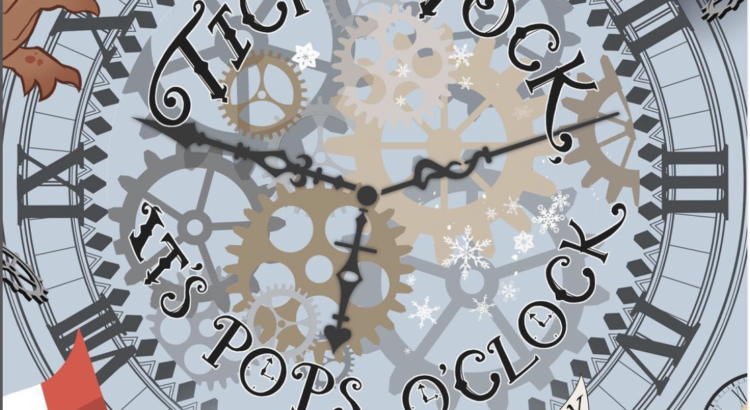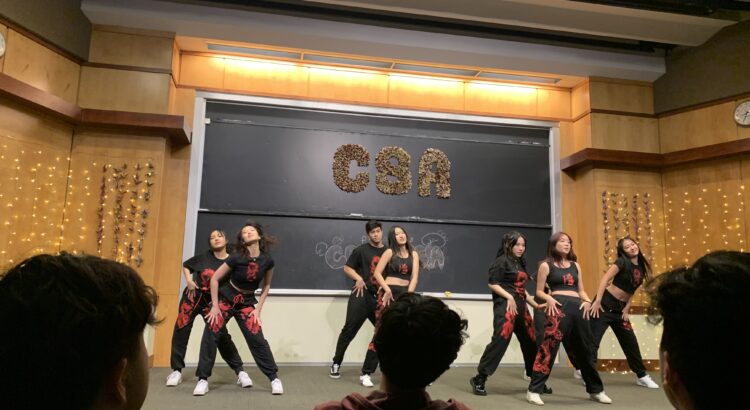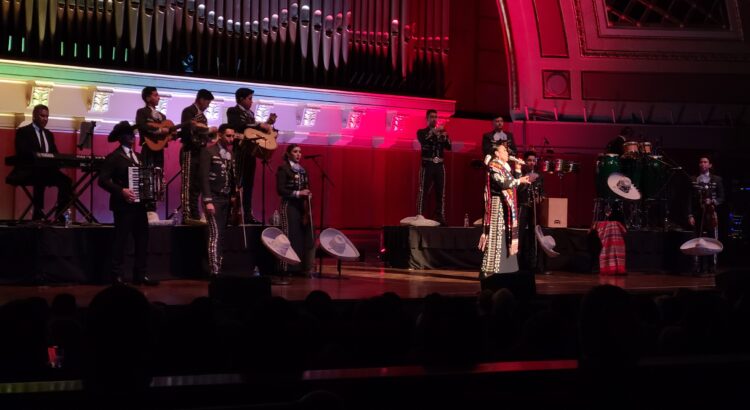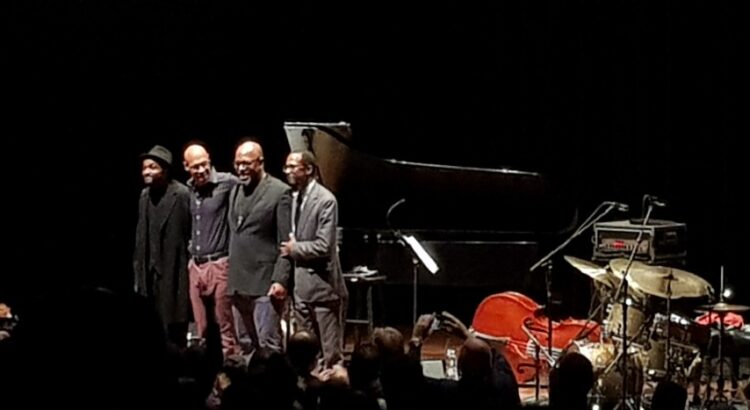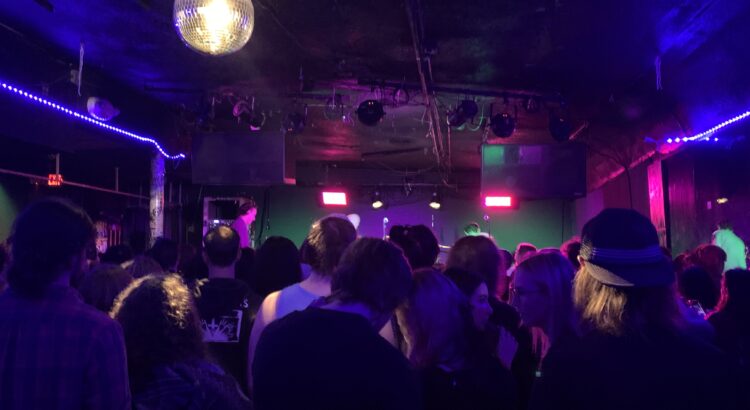*The image above is rXn, CSA’s dance group*
Celebrasia is definitely one of the events on campus with the best attendance turnout. The posting wall was flooded with people, truly resembling a night market, and people had already begun waiting in line thirty minutes before the performance. Unfortunately for those who didn’t come early, there weren’t enough seats (even for the performers); the aisles and back of the auditorium were flooded with people too, and they all stood for the entirety of the two-and-a-half-hour show. It was impressive how eager everybody was to watch the student organizations.
Having The Qingyun Chinese Music Ensemble perform first was a good decision; it established Celebrasia’s emphasis on cultural diversity by presenting various Chinese instruments such as the erhu and guzheng. It was also my first time hearing traditional Chinese music performed live; the sight and sounds of their ensemble were captivating with its heart-tugging melodies and gentle rhythms.

One of the most hyped-up performances was by DB3, the all-male K-pop dance group. It’s unsurprising how excited the audience was, as DB3 went hard on promoting their concept: ‘School Daze’. Each member wore a cute school uniform, and on their Instagram, they posted pictures of their group and all members too. 
In contrast, Moli, the female Chinese cultural dance group performed right after, and it was one of my favorite performances. They incorporated their clothing and fans into the dance as if they were extensions of their body and wore multiple outfits throughout their act. It was amazing how they managed to change clothes in such a short time and still keep the audience engaged throughout.
It’s understandable why popular songs and more powerful moves earn the most cheers, but this group stood out to me because of how different they were. While I was extremely excited watching all the hip-hop dances, I was most awe-inspired by Moli’s choreography.
Revolution, however, had a fantastic performance that successfully fused both culture and hip-hop. This group was also extremely memorable because the audience would collectively scream oooh and sigh aww. Unlike other performances, if one of the members stumbled it still added to the cheerful atmosphere in that way. It was so much fun because of that, and I would giggle at how in sync we were as an audience. Revolution is an extremely large group, but no member shined less than the others as our focus was on the Chinese Yo-Yos being tossed and twirled and caught in sync with the music. Their performances always showcase how strong their teamwork is and how much the members need to trust each other because many of the moves rely on one another to be successful. In small groups, that’s already hard, so Revolution is especially extraordinary.

I haven’t touched upon all of the groups that performed, but not because they were lesser in any way. If I did, then this review would probably be 2,000 words. As much as I’d love to do that, I don’t think it’d do justice to every group’s hard work and talent. That’s why it’s up to you, fellow reader, to go check out their performances yourselves! Especially for the groups I haven’t mentioned. If you’re interested in who did perform,
I want to give a special shout-out to those who worked through the technical difficulties at Celebrasia like Female Gayo and Seoul Juice. It showed their professionalism as performers, and they still killed it despite the additional challenges.
Celebrasia is genuinely one of the most special events on campus. If you missed it this time, don’t miss it next year!

